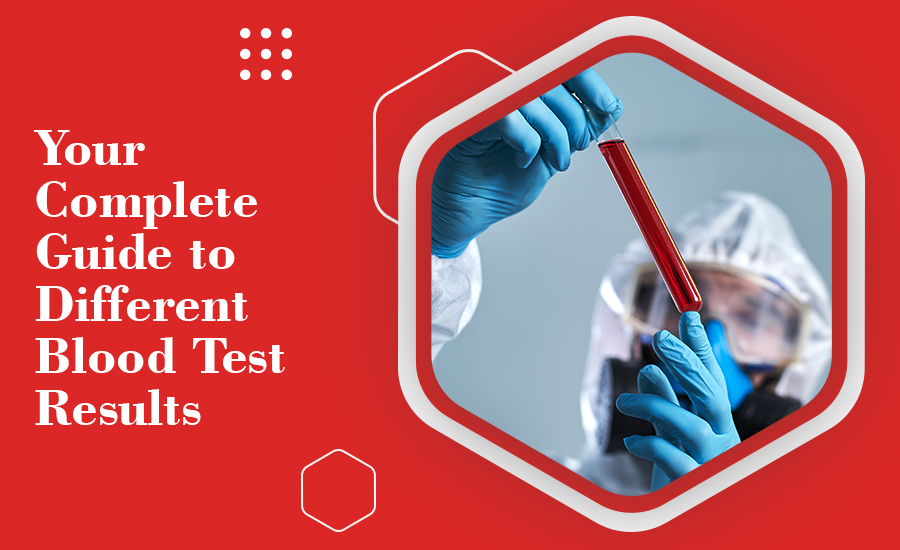A blood test or a laboratory test is an examination of your blood sample at the laboratory to check for proper functioning of different organs such as – heart, liver, kidneys, thyroid, some genetic disorders and infections to evaluate health condition of an individual. Once the blood sample gets evaluated in the laboratory and the results are ready, the report will be given to the concerned person.
Different components of blood test results
A private blood test in London is usually composed of three main tests and these are – a complete blood count, a lipid panel and a metabolic panel.
Complete blood count or CBC
The complete blood count (CBC) includes three kinds of blood cells which are –red blood cells (RBCs), white blood cells (WBCs) and platelets. By calculating the volume of blood cells, the CBC enables a doctor to assess overall health of an individual and detect for certain conditions such as anemia and leukemia.
White blood cell or WBC count
Also called leukocytes, white blood cells are a vital component of the immune system of your body. The higher white blood cell denote the presence of an infection but a low count may point towards several conditions including – AIDS/HIV and lupus.
Red blood cell or RBC count
Red blood cells will carry oxygen to the tissues all over your body by making them necessary for healthy functioning. The red blood cell count indicates the volume of RBCs within an individua. When the results show a count below or above normal levels, this denotes several medical conditions and you need to visit a doctor immediately.
Hematocrit or Hct test
This tests what proportion of the blood is usually made up of RBCs and help to diagnose anemia along with other medical concerns.
Hemoglobin or Hgb test
Hemoglobin is actually a protein present within the red RBCs which sends oxygen from your lungs to the body tissues. The test can help to diagnose anemia and different practitioners prefer this test over hematocrit test.
Mean corpuscular volume (MCV) test
The space filled by each red blood cell or the volume of RBCs can be calculated with this test. The results outside normal range indicate severe fatigue or anemia among other medical problems.
Mean corpuscular hemoglobin or MCH test
The blood test in London is done to calculate the amount of hemoglobin present in each red blood cell. High levels denote anemia while low levels indicate malnutrition.
Red cell distribution width (RDW or RDW) test
This tests the distribution of RBCs and the levels outside normal range denote certain conditions such as liver disease, malnutrition and anemia.
Platelet count
The test calculates the number of platelets present in your blood. When the testing denotes a high count, this indicates infection, anemia or cancer, But a low count might avoid wounds from healing and lead to excessive bleeding.
Mean platelet volume or MPV
This tests the volume of platelets present in your blood. Low platelet volume may lead to irregularities with bleeding but high platelet volume can increase the risk of an individual for stroke or heart attack.
Comprehensive metabolic panel or CMP
The comprehensive metabolic panel test or chemistry panel calculate the glucose levels, electrolyte balance and fluid of your body along with kidney and liver function.
Alanine aminotransferase or ALT test
Alanine aminotransferase is said to be an enzyme produced by your liver cells.The higher levels denote damage to your liver.
Albumin test
Albumin is the protein produced by your liver and the volume can be calculated through this test. Abnormal levels usually take place due to kidney or liver problems.
Total protein test
This tests the ratio of two kinds of proteins such as – albumin and globulin. While low levels of protein denote different conditions such as – kidney or liver disorders and malnutrition, high levels indicate infection, bone marrow disorder or sign of inflammation.
Alkaline phosphatase test
This enzyme is usually produced in bone cells and liver. The results outside normal levels indicate bone problems such as bone tumors r rickets and liver damage.
Aspartate aminotransferase test
This is an enzyme usually found in muscle tissue and RBCs as well as the liver, heart, kidneys and pancreas. It can calculate the levels of enzyme in your body and denote certain condition such as some kinds of cancer, heart, kidney or liver damage.
Bilirubin test
The tests for liver dysfunction and kidney can help in diagnosing certain conditions such as anemia, liver diseases and neonatal jaundice.
Blood urea nitrogen or BUN test
The test calculates the volume of nitrogen in your blood. Higher levels occur due to kidney disease or damage but low levels indicate malnutrition or extreme liver damage.
Calcium test
The test calculates the levels of calcium present in your blood. When the test denotes lower levels, this means hyperparathyroidism, cancer, tuberculosis and other conditions. On the other hand, higher levels may indicate certain conditions such as – rickets, hypoparathyroidism and malnutrition.
Chloride test
This test can help to calculate the levels of chloride in your body. The increased chloride level denotes adrenal gland dysfunction, kidney disorders and dehydration.
Creatinine test
Creatinine is actually the chemical waste molecule that can lead to muscle energy. The increased creatinine levels denote kidney dysfunction.
Fasting blood sugar test
The levels of blood sugar can be affected easily with the intake of food or drink. The fasting sugar test is usually done after at least six hours of your fasting and abnormal results denote you are having diabetes.
Phosphorus test
This private blood test in London calculates the amount of phosphorus present in your blood. The elevated levels denote some problems with the parathyroid glands, kidneys and denote a sign of alcohol abuse or malnutrition.
Potassium test
Potassium helps the communication between your muscles and nerves, maintains proper function of muscles and regulates your heart.
Sodium test
Sodium is actually a mineral that can help in muscle contractions, balancing the levels of water and nerve impulses. Irregularities are common indication of adrenal gland disorders, dehydration, corticosteroids, liver or kidney disorders.
Lipid panel
The lipid panel includes different tests to calculate several kinds of cholesterol and triglycerides (fats) in your blood.
Total cholesterol test
The test calculates the levels of bad and good cholesterol present in your blood.
Triglycerides test
The tests for triglycerides are usually present in your blood. Irregularities are a common risk factor for getting heart disease and other medical problems.
HDL cholesterol test
This HDL cholesterol or higher-density lipoprotein can help in the protection against any heart ailment. Lower levels may enhance the risk associated with heart problems.
LDL cholesterol test
This kind of LDL cholesterol or low-density lipoprotein has been linked with clogged arteries and heart disease.
Total cholesterol to HDL ratio test
The ratio can help to know the risk of getting a heart disease for an individual. It is usually done by dividing HDL cholesterol into the total cholesterol and higher levels are a probable indicator of heart concerns.
If you are extremely worried whether you or a loved one is showing the symptoms of higher cholesterol, then consult with the doctor and get private blood tests done on time.
 The Care Up
The Care Up




